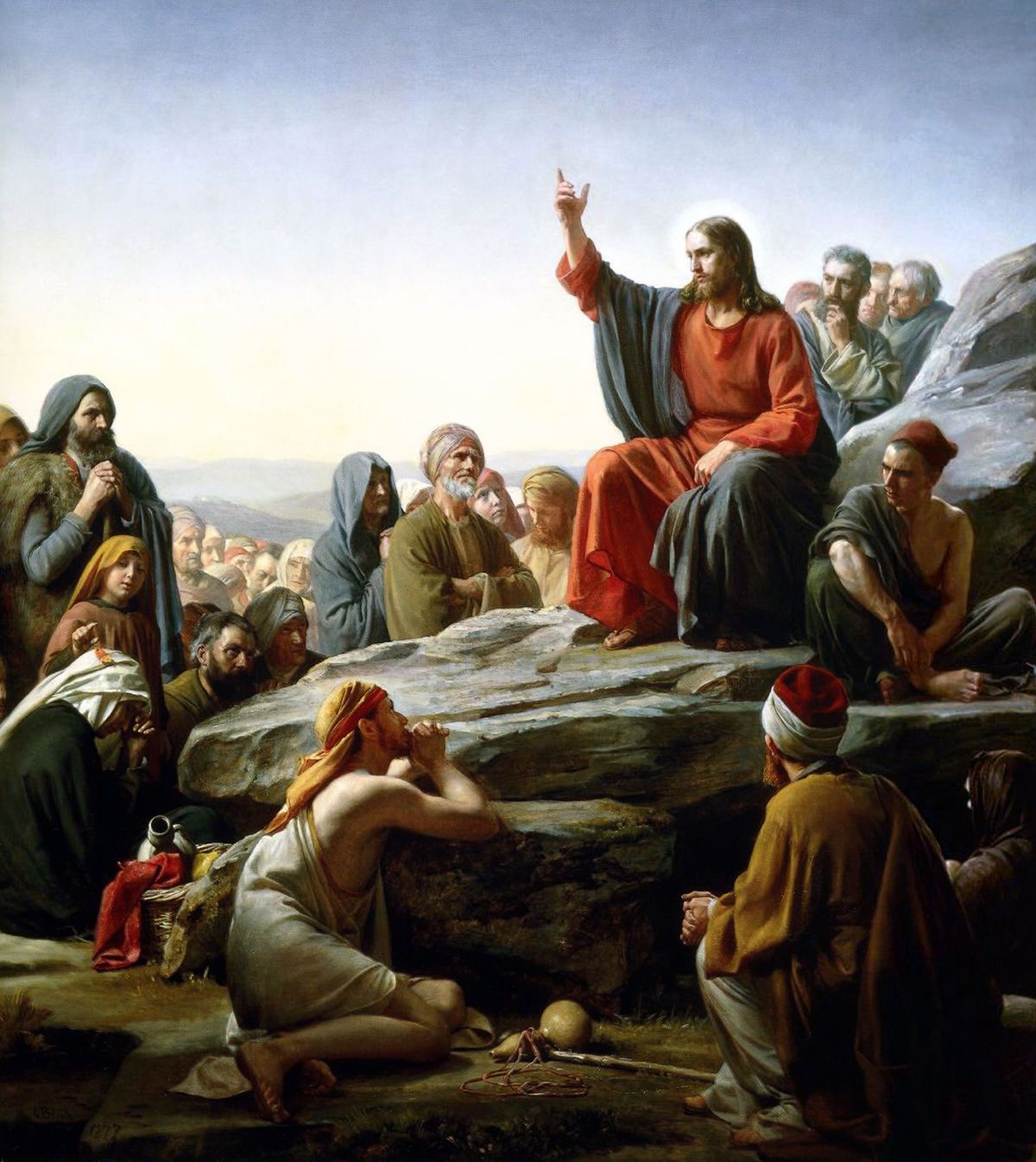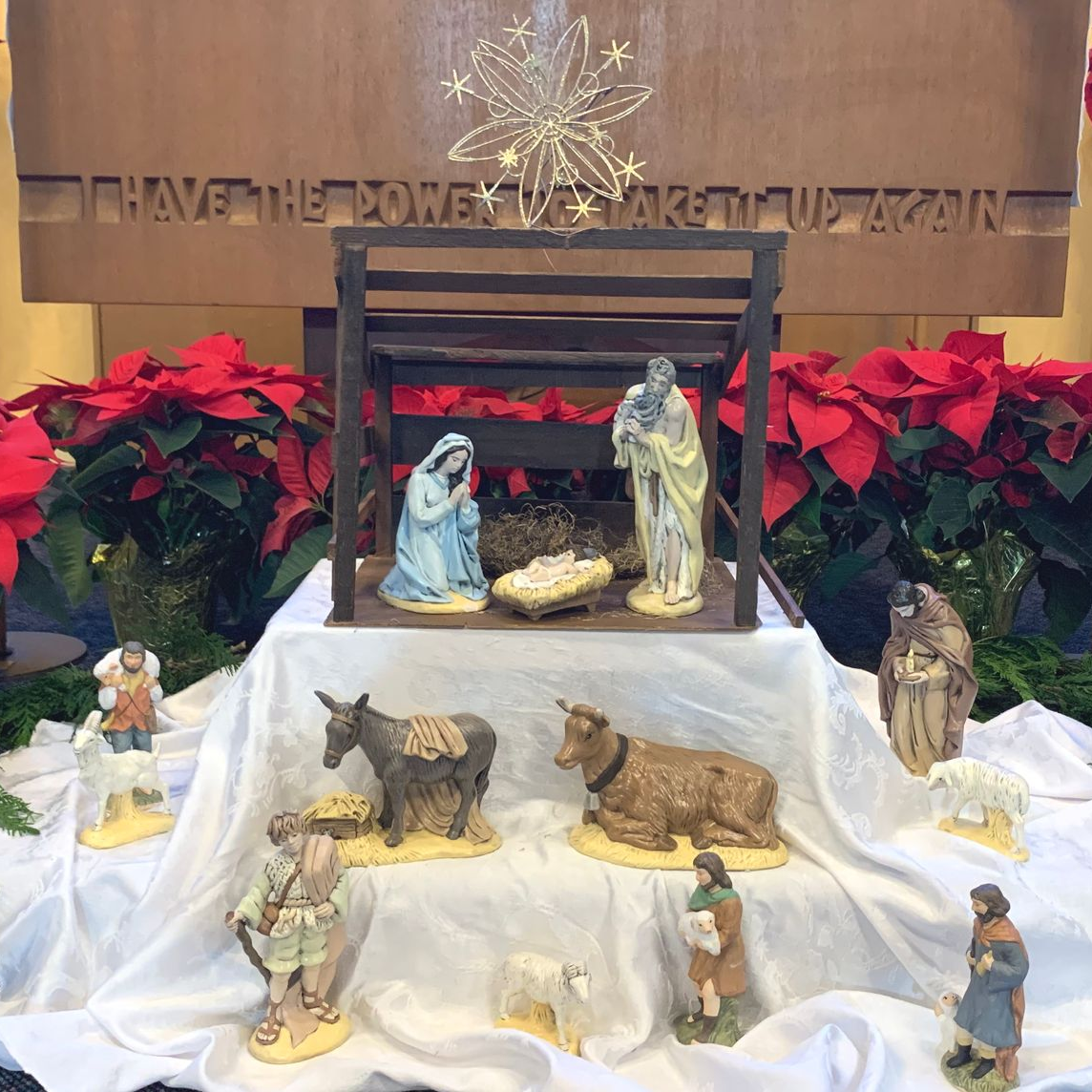The Good News Is Mercy
God’s love is not something we can deserve.
2025-53
sermon preached at Church of the Good Shepherd, Federal Way, WA
www.goodshepherdfw.org
by the Rev. Josh Hosler, Rector
The Twentieth Sunday after Pentecost (Proper 25C-Tr1), October 26, 2025
Joel 2:23-32 ; Psalm 65 ; 2 Timothy 4:6-8,16-18 ; Luke 18:9-14
Lately I’ve been asking y’all for good news. I’m not done yet. Does anybody have some good news for me today? […]
This is all good news. But yet again I’ll ask, what is The Good News? And yet again this week, I have another new way to put it: “The Good News is the mercy that destroys all shame and equalizes us before God.”
So having just heard this parable from Jesus, let’s begin here … are you more like the Pharisee, or the tax collector? Be honest now. Do you try hard to do your best? Are you a good person? An upstanding citizen? Do you show up when there is thankless work to be done? Do you get involved on committees both inside and outside the church? Do you make an annual pledge to Good Shepherd?
I do all of these things. I love checking off boxes and doing things well. I love being with people, even when they are hurting. I enjoy doing the dishes. And I tithe to Good Shepherd. My salary shows up publicly in our annual budget, and when we add Christy’s income and divide by ten, that means our pledge for 2026 will be … $18,200.
I bet you wish I’d stop talking about this. Right now, aren’t you mentally comparing your pledge to mine? If it’s less than mine, is that bringing you down, as if it were a measure of your worth? If it’s more than mine, then are you justifying why you don’t give 10%?
Well, I’ll let you off the hook. We first began giving 10% when Bishop Greg informed us that he expected it from all clergy, no matter what! And that lifted a huge burden from my shoulders. I don’t even have to think about it, and 10% is super easy to calculate. Still, I have just thrown decorum out the window by talking about how much money I make.
I don’t fast twice a week, though. I’ve tried fasting from food, and it’s not pretty. I don’t even fast on Good Friday because I have to be “on” in my duties as a priest. I know that some of you make a practice of fasting in the course of your prayer life, but it’s not my gift. The best I’ve done is that I once gave up Facebook for Lent.
Now, Jewish law required only one day of fasting per year, not two per week—so the Pharisee in our parable is a hardcore overachiever. Good for him, because we need more people like him to set us an example. But we don’t know how easy it is for the Pharisee to accomplish this. He may have been born with a great deal of privilege.
Many of us have grown accustomed to imagining that the Pharisee is bragging when he prays. But this is not a good assumption. It all comes down to tone of voice and emphasis: “I fast twice a week; I give a tenth of all my income.” Let’s try it a different way … “I fast twice a week; I give a tenth of all my income.” Depending on how you hear it, the Pharisee’s prayer could just be the equivalent of one of your own prayers, for instance: “Thank you, God, for granting me so many blessings, which have enabled me to be generous with what I have. I see others who are less fortunate, and there but for the grace of you go I.”
The Pharisee is certainly righteous, but there’s no reason to assume he’s self-righteous. Just grateful. Have you ever been this Pharisee?
Now let’s talk about the tax collector. In Jesus’ day, the work of Jewish tax collectors was to collude with the Roman occupiers. They might arrange for money to be extorted violently, as long as it got collected. And nobody prevented them from taking more than their prescribed cut. The tax collectors could use their built-in tip jar to establish financial security, while most of their own people didn’t have this option. So it’s no surprise that the Pharisees didn’t like them. You know what a modern-day equivalent might be? An ICE agent.
So which of the two men in Jesus’ parable deserves God’s favor? Clearly the Pharisee—he lives an upstanding, respectable, moral life. But who did Jesus say is justified? The immoral tax collector. According to Jesus, God’s love is not something we can deserve.
Let me say it again: God’s love is not something we can deserve.
Say it with me! “God’s love is not something we can deserve!”
The tax collector could try playing the Pharisee’s game. He could pray, “At least I’m not like that self-righteous Pharisee in his ivory tower of morality! He doesn’t know what it’s like to be Joe Taxman. What other job could feed my family well enough? If I didn’t collect taxes, somebody else would. And is it so wrong to want the best for my children?”
But that’s not what happens. The tax collector skulks into the temple, creeps into a far corner, and openly sobs. He crumples in a heap as he ponders what his career is doing to his people—to God’s chosen people! In the marketplace, he may well shrug off the people’s hostility. But he can’t keep up that façade in God’s temple. He is worthless scum and he knows it.
The Pharisee wants to ensure that he’s doing everything right. The tax collector just wants God not to give up on him.
What happens to the Pharisee and the tax collector after they leave the temple today? Let’s imagine. The Pharisee keeps doing lots of good things … feeding the poor … housing the homeless … defending widows and orphans … hey, these are all great things! Give him a commendation from the City Council.
And the tax collector? Will he quit his job? Will he stop bilking his own people, sacrifice his kids’ college education, and embark on a new career washing dishes instead? I doubt it. But Jesus tells us that God exalts the tax collector anyway, simply because of his earnest repentance in the temple.
And this presents us with a problem. We all want the tax collector to change, to become a better person, to do the right thing. We want Jesus to say that God will only give this guy so many chances to shape up. We expect him to chronicle some improvement before he shows his face in the temple next week. But as author Robert Farrar Capon writes of this parable: “Why are you so bent on destroying the story by sending the [tax collector] back … with the Pharisee’s speech in his pocket?”[1]
But wait! you cry. Haven’t we already established that the Good News is healing, and that the Good News is justice? Well, where’s the evidence of the tax collector’s healing? And where’s the justice for those he victimizes?
I did say two weeks ago that the Good News is the healing that leads to gratitude. I also said last week that the Good News is the justice that comes swiftly enough to be strong, but gently enough to last forever. God knows that punishing rulebreakers doesn’t make them improve themselves. Instead, God lavishes mercy on tax collectors and their ilk, over and over again, because it’s not like God is going to run out of mercy. People might not improve at a pace that will satisfy us, but that’s not God’s primary concern. God just wants us, in any old way—good, bad, or indifferent.
Once this realization finally penetrates our thick walls of selfishness and fear, we might improve ourselves simply out of joy. But we don’t come to church because we’re good people. We come to church because we need mercy, and mercy, by definition, can never be earned. In fact, you know what? We are all—all of us—tax collectors. Even those of us who think we are Pharisees.
There’s one more thing to mention here, and it rests on a finer point of Greek grammar. If you’ve grown up hearing this parable, you’ve probably heard it as a zero-sum game: the tax collector goes home justified, while the Pharisee does not. It sounds like a binary: you’re either with God or you’re apart from God. That leaves all of us fumbling in the dark for how to get into a certain box and stay there, and then to try to get others into the box. Our current Zoom class, “What Even IS Christianity?,” will talk about this very phenomenon tomorrow night.
But that’s not how real relationships work. The ways we love one another are not all or nothing, so how could it be that way with God? And so we take a deeper look at one Greek word in this parable, the preposition translated “rather than.” The word is παρά. But prepositions are fiddly things, especially when you’re trying to translate them from one language to another. παρά doesn’t have to imply opposition. Its most basic definition is less like “rather than” and more like “alongside.”
What if we’ve been reading this parable wrong? “I tell you, this man went down to his home justified alongside the other.”
The tax collector is not taking the Pharisee’s place in a heavenly mansion without enough rooms. God makes both of them righteous by bringing their separate paths together! The crown of righteousness is not a reward given for brownie points. It is a gift given out of love. What if God’s justice always looks like mercy … and God’s mercy always leads to healing, if not fully in this life, then at least in some way beyond the grave?
“The Good News is the mercy that destroys all shame and equalizes us before God.”
Here, then, is the Church of the Good Shepherd, a hospital for sinners, a haven for mercy. Here our separate paths come alongside each other and we share a feast. So when you make your pledge to Good Shepherd for 2026, don’t agonize over it. Don’t compare yourself to others. We’ve had pledges of tens of thousands of dollars a year, and we’ve had pledges of ten dollars a year. Just calculate the percentage you intend to give, and write that down in dollars. Drop it in the plate or use the online pledge card. In God’s eyes, all pledges are equal exercises in faith, so give something, anything. With the help of the Holy Spirit, your contribution to the feast will become fuel for healing, justice, and mercy.
OK, a little more good news? Let’s be thankful together! […]
[1] Robert Farrar Capon, Kingdom, Grace, Judgment: Paradox, Outrage, and Vindication in the Parables of Jesus (Grand Rapids, MI: Eerdmans, 2002), 343.











